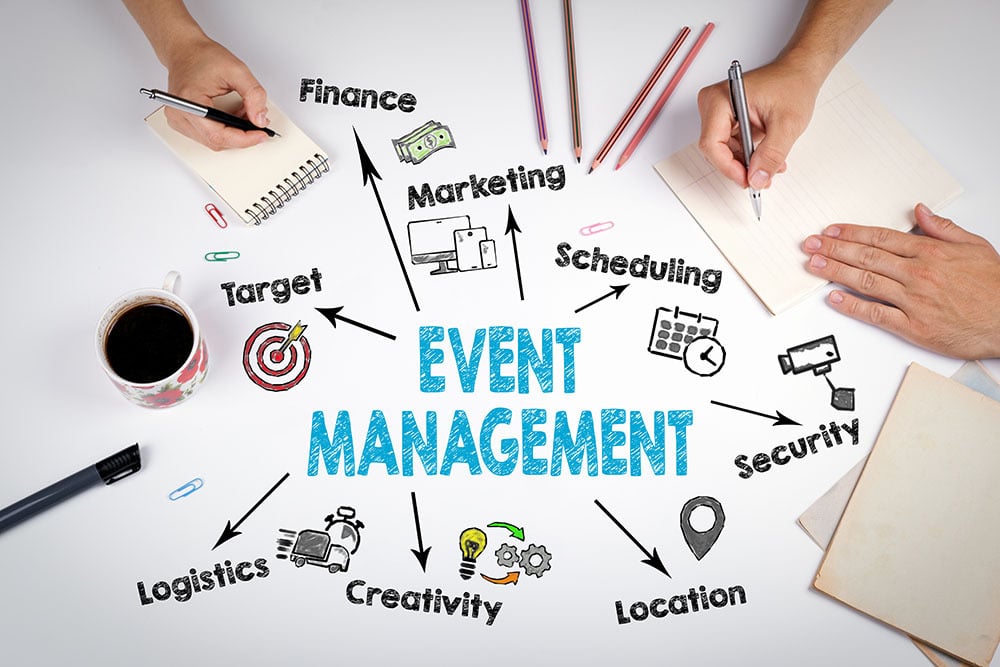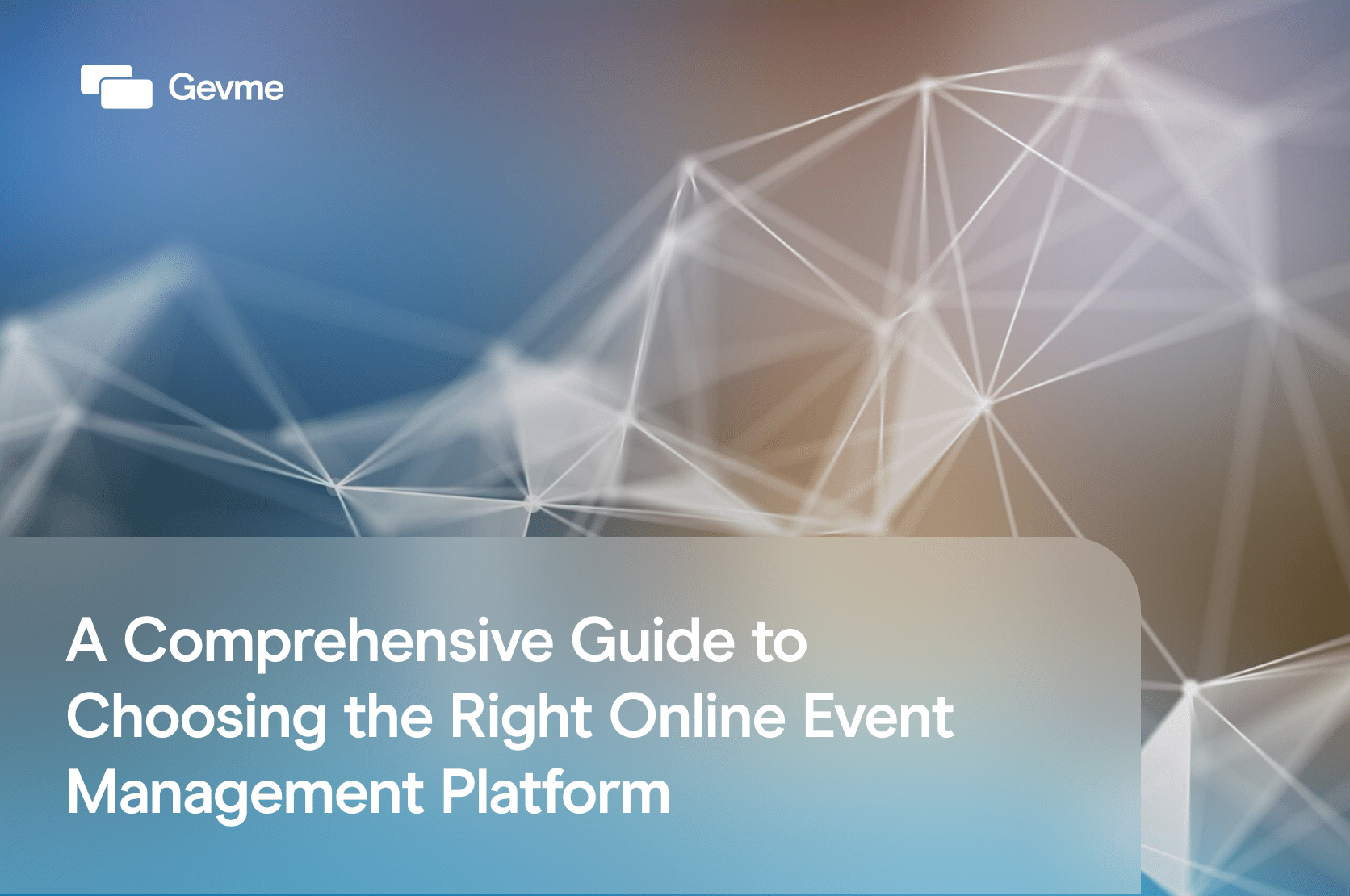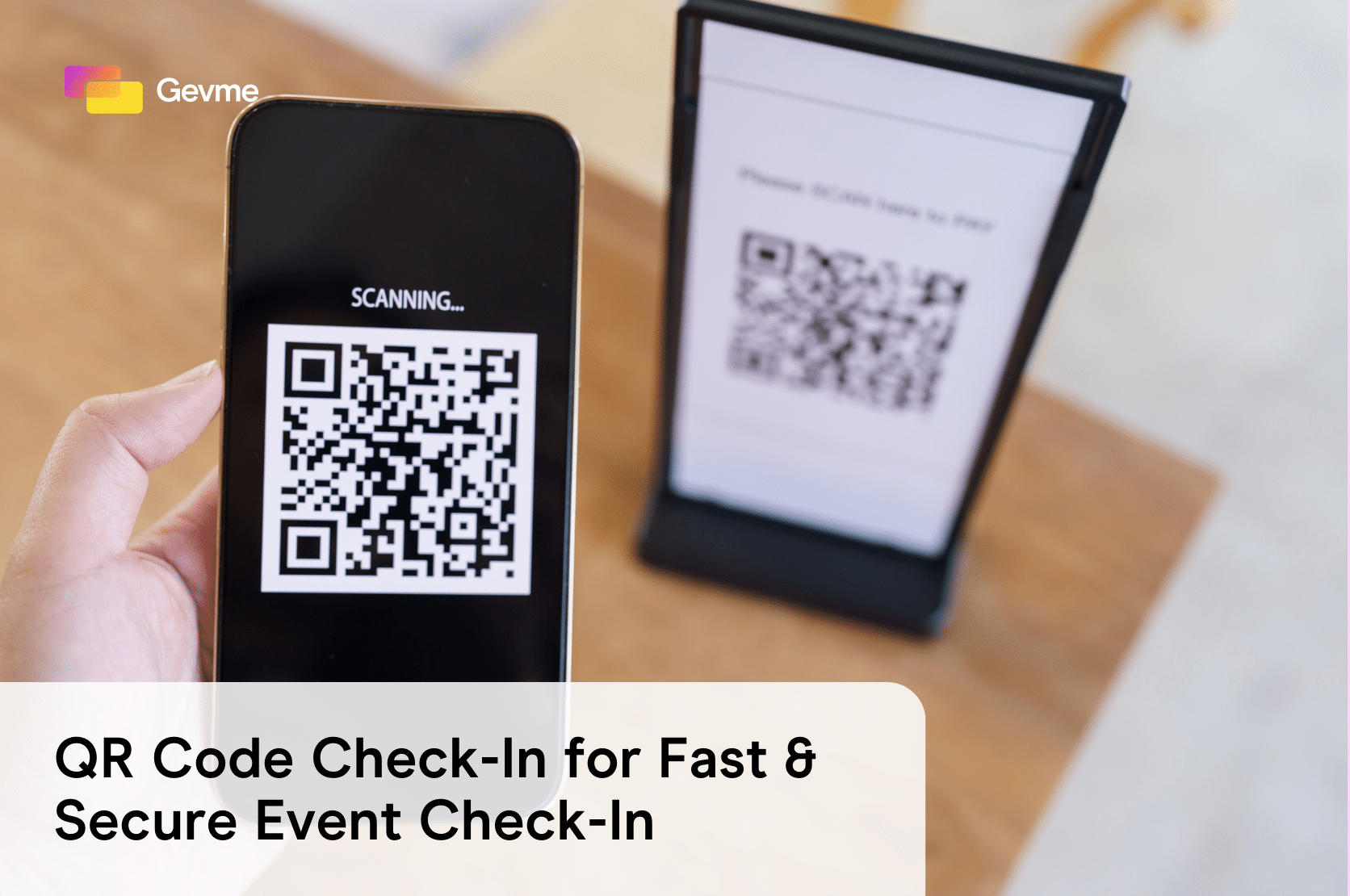In the evolving landscape of post-pandemic events, online gatherings have gained substantial momentum. Their appeal lies in the numerous advantages they offer, including cost-effectiveness, convenience, accessibility, and scalability. However, it’s important to acknowledge that online events also present unique challenges, ranging from technical hurdles to audience engagement, data security, and event measurement.
In light of these considerations, selecting the ideal online event management platform becomes paramount. This choice can significantly impact the planning, execution, and optimization of your online events. But how do you navigate this decision-making process effectively? What criteria should you use when evaluating different platforms? Which features and functionalities are crucial in a platform?
In this blog post, we embark on a comprehensive exploration to guide you in making the right choice while choosing an event management platform for your specific event needs and goals – ensuring a seamless online event experience.
The benefits of using an event management platform
An online event management platform is a software solution that helps you create and manage your online events. It provides various tools and services that assist with every aspect of the online event lifecycle, including:
- Event website creation: Create a customized and branded event website to showcase event details and attract potential attendees.
- Event registration and ticketing: Design a simple and intuitive registration form to collect essential information from attendees and process their ticket sales and payments.
- Event marketing and communication: Develop and send personalized and targeted email campaigns to promote your event and communicate with attendees before, during, and after the event.
- Event delivery and engagement: Deliver event content and interact with attendees using various modes and formats, such as live streaming, video conferencing, webinars, virtual booths, polls, quizzes, chats, and more.
- Event analytics and evaluation: Collect and analyze data from your event to generate reports and insights that measure event performance and impact.

Additional benefits include:
- Saving time and money: By working with a proficient online event management platform, you can reduce the time and cost involved in planning and organizing online events.
- Increasing attendance and reach: Attract more attendees from various locations and time zones by providing a convenient and accessible way to participate in your online events.
- Improving engagement and satisfaction: Engage attendees with interactive and immersive features, enhancing their online event experience and satisfaction.
- Growing your brand and community: Create a professional and memorable online event to boost your brand awareness and reputation. Furthermore, you can expand your community and network by connecting with attendees and encouraging them to share your event with their contacts.
Types of online events that you can host using an event management platform
An online event management platform is a versatile solution that can support various types of online events. Depending on your event objectives, audience, content, format, duration, etc., you can choose the type of online event that suits your needs. Some of the common types of online events that you can host using an online event management platform are:
- Webinars: Webinars are among the most popular online events, focusing on presenting information or sharing knowledge on a specific topic or theme. Typically lasting an hour or less, they involve a presenter or a panel of speakers delivering content using slides, audio, and video. Attendees can interact with speakers and each other using features like Q&A, polls, and chats. Webinars are excellent for educating, informing, or demonstrating products or services.
- Virtual Events: These events simulate the experience of physical events on a virtual platform. They can host multiple sessions, speakers, exhibitors, and sponsors, and can last from a few hours to several days. Attendees can access the event from anywhere, and various features like virtual booths, lounges, and chat rooms facilitate networking and interaction. Virtual events are perfect for hosting large-scale conferences, trade shows, expos, and fairs.
- Hybrid Events: Combining elements of both physical and virtual events, hybrid events use a platform to stream live content from a physical venue to an online audience and vice versa. Offering the best of both worlds, attendees can choose their preferred mode of participation. This format allows organizers to cater to a wider and more diverse audience, making it suitable for product launches, award ceremonies, and festivals.
- Live Streaming: Live streaming broadcasts live video and audio content from a location or event to an online audience. Using various platforms and devices, like social media or smartphones, viewers can interact with the content through comments, reactions, and shares. Live streaming is great for showcasing brand personality with behind-the-scenes footage, interviews, or demonstrations.
- On-demand Events: These events feature pre-recorded or archived video and audio content accessible to attendees at their convenience. Hosted on platforms like websites, blogs, or podcasts, they offer flexibility, allowing viewers to engage with the content whenever they want. Ideal for educational, informational, or inspirational content, on-demand events include courses, tutorials, webinars, and podcasts.
Points to consider when choosing an event management platform
Now that you understand the benefits and types of online events possible with an online event management platform, the next step is choosing the right one tailored to your specific event needs and objectives. Given the myriad of platforms available, each boasting unique features, it can be daunting to make a choice. To guide your decision, here are several criteria you should consider:
- Event Objectives: Start by defining your event’s goals. What are you aiming to accomplish? Whether it’s educating, entertaining, generating leads, driving sales, raising donations, elevating awareness, or building a brand community, understanding your objectives will help pinpoint the type of event you want to host and the requisite platform features.
- Event Audience: It’s crucial to understand who your attendees will be and their expectations. Identify your target demographic, their preferences, and behavioural tendencies. Estimate the number of participants and consider their geographical locations. How do they typically access and digest online content? Understanding your audience’s engagement habits will help tailor the event’s format and ensure the platform delivers an optimal user experience.
- Budgetary Constraints: Clearly outline your financial resources for the event. Predict potential revenue and balance it against projected expenses. Determine how much you’re willing to invest in a platform and evaluate the expected return on that investment. If your event has a fee, decide on ticket pricing or donation strategies and ensure the platform can accommodate your payment processing needs. Your budget will influence platform choice, especially when weighing cost against provided features.
- Team Capabilities: Take stock of the team managing your online event. How many individuals are involved, and what are their specific roles? Familiarity with online tools and the required commitment level are crucial factors. Partnering with the right online event management platform can make a significant difference. If your team isn’t well-versed with certain technologies or platforms, choosing an online event management platform that offers an intuitive interface and reliable customer support becomes paramount. Understand your team’s proficiency and time constraints to ensure the platform is user-friendly and offers adequate support.

The features to look for in an event management platform
After evaluating your needs and objectives for your event, you’ll need to hone in on the platform features that will best serve those requirements. While specific needs may vary depending on the event type, several features are fundamental across various online event platforms. Here are the essential functionalities you should consider:
- Event Website Creation: A professional and appealing event website is paramount. Look for platforms that allow you to craft a customized, brand-aligned website with ease. Features should include diverse templates, themes, a drag-and-drop interface, and customization tools for logos, fonts, images, and videos. Additionally, ensure the platform provides a responsive design that adjusts seamlessly to various devices and screen sizes.
- Registration and Ticketing: A smooth registration experience is vital for attendees. Opt for platforms that enable easy form creation, offering a range of tools like diverse field types, validation rules, and conditional logic. The platform should process ticket sales efficiently and incorporate a robust and secure payment system, compatible with various payment gateways.
- Marketing and Communication: Effective promotion and clear communication are key to event success. Platforms should offer tools to design and dispatch tailored email campaigns to your audience, providing options for segmentation, personalization, automation, and analytics. The design elements should be both attractive and mobile-responsive to ensure maximum reach and engagement.
- Event Delivery and Engagement: Delivering the event content seamlessly and fostering attendee engagement are critical. Features to consider include live streaming capabilities, video conferencing, virtual booths, and interactive elements like polls and chats. Ensure that the platform supports various event components such as speakers, exhibitors, and agendas. A stable and high-quality connection that can handle streaming without hiccups is essential.
- Analytics and Evaluation: Post-event assessment aids in gauging success and informing future events. Platforms should offer robust analytics tools, providing metrics, charts, graphs, and dashboards to evaluate event performance. Additionally, platforms should facilitate gathering feedback from attendees through intuitive feedback forms.
The best practices for using an online event management platform
Having selected the ideal online event management platform, the next step is ensuring its optimal use for effective event creation and management. While specific tactics can vary depending on your event, several overarching best practices apply universally:
- Plan Ahead: The essence of a successful event is meticulous planning. Set out your event objectives, define your target audience, allocate a budget, assemble a capable team, and curate engaging content. Before the event, conduct thorough tests on the platform and your devices to guarantee a seamless experience for your attendees. Ensure you have contingency plans in place for any unforeseen issues.
- Promote Your Event: Visibility is key. Utilize various channels such as social media, email campaigns, blogs, and podcasts to spread the word about your event. Craft compelling messages and clear calls to action to drive registration and ticket sales. Offering early-bird discounts or limited-time offers can also incentivize potential attendees.
- Engage Your Attendees: A passive audience can lead to reduced engagement and event drop-offs. Actively engage your audience using interactive platform features. Integrate polls, Q&A sessions, chats, and even gamified elements to maintain attendee interest. Strive to deliver high-quality, relevant content that resonates with the audience’s needs and expectations.
- Follow-Up Post-Event: Building lasting relationships extends beyond the duration of the event. Engage attendees after the event through follow-up emails, sharing event highlights, providing access to resources discussed during the event, or even offering recordings for those who might want to revisit sessions. This not only shows appreciation but also keeps your brand top-of-mind, making attendees more likely to participate in future events.
- Seek Feedback: Constructive feedback can provide invaluable insights for future events. After the event, circulate a feedback survey to gauge attendee satisfaction and gather suggestions. This will help you identify areas of improvement, and demonstrate to attendees that their opinions are valued.
- Analyze and Adapt: Utilize the analytics tools provided by the platform to assess various metrics, such as attendee numbers, engagement rates, and content effectiveness. Analyze this data to understand what worked and what didn’t, and use these insights to refine your approach for future events.
Conclusion
Choosing the right online event management platform is a critical step in creating and managing successful online events. The guidelines provided above aim to streamline this decision-making process, ensuring that you secure an event management platform tailored to both your event’s objectives and your audience’s expectations.
One noteworthy mention in this domain is Gevme, a comprehensive and integrated event management platform that can help you create engaging and memorable events. Gevme can help you with every aspect of your online event lifecycle, from creating an event website to collecting feedback from your attendees.
If you want to learn more about Gevme or try it out for yourself, you can visit their website or request a free trial or a demo from there.








